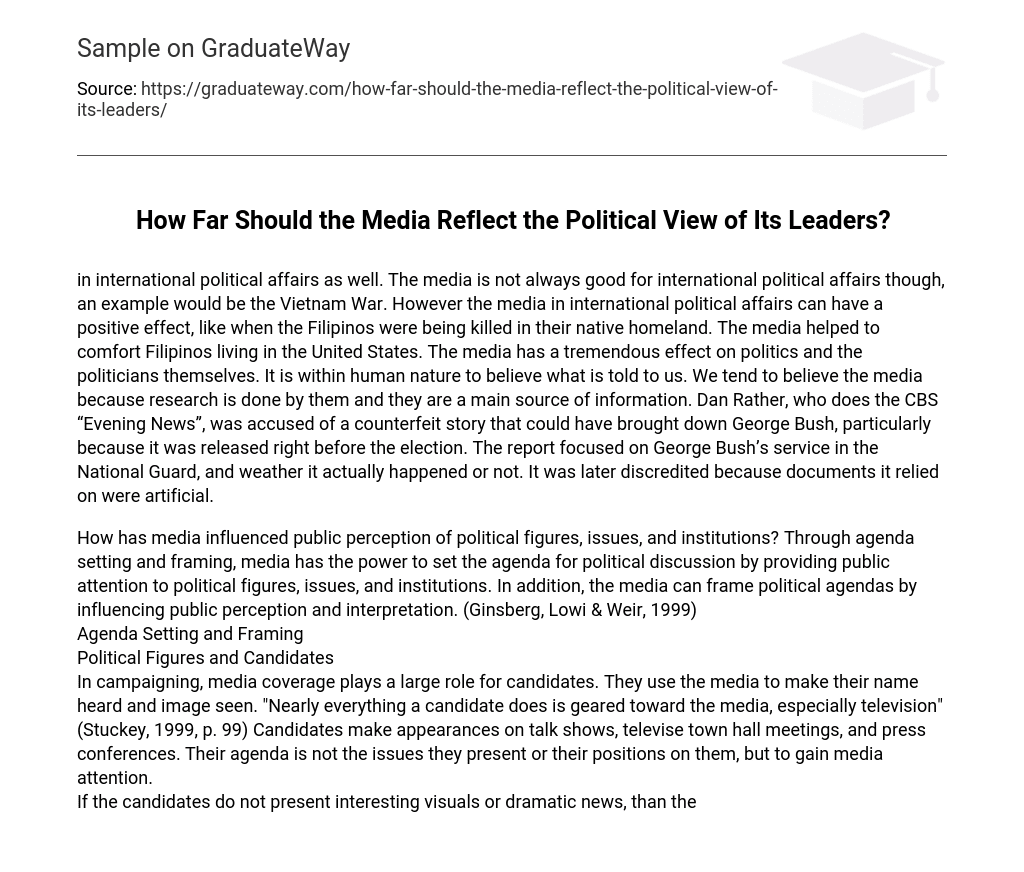The media has a significant impact on international politics, both positively and negatively. The Vietnam War is an example of its negative influence. However, there are cases where the media provides comfort to Filipinos in the US during violent situations in their home country. Politicians and politics are greatly influenced by the media, as it is a primary source of information that people believe. An incident involving Dan Rather, anchor of CBS’s “Evening News,” illustrates this. He was accused of presenting a fabricated story with potential consequences for George Bush before an election. The story focused on Bush’s National Guard service but was later discredited when fake supporting documents were discovered.
The media plays a significant role in shaping public opinion on political figures, issues, and institutions. Through agenda setting and framing, the media has the power to direct political discussions and capture public attention. Additionally, by influencing how information is perceived and interpreted by the public, the media can shape political agendas. For political figures and candidates, media coverage is essential for their campaigns as it helps them gain visibility through appearances on talk shows, televised town hall meetings, and press conferences. It is not only about presenting their positions but also about attracting media attention with captivating visuals or sensational news. Without these elements, candidates may struggle to receive adequate media coverage.





